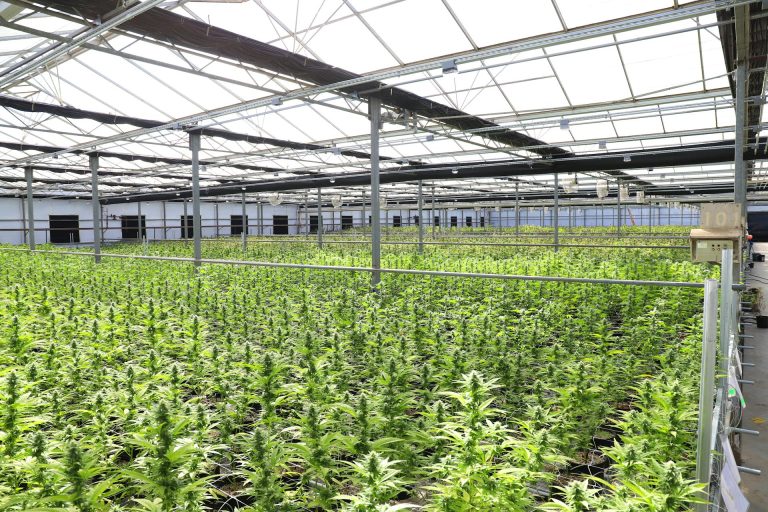In the food manufacturing industry, inventory management is a critical cornerstone, ensuring a smooth transition from raw materials to finished products on supermarket shelves. The essence of proficient inventory management lies in the delicate balance it strikes – guaranteeing product availability while minimizing waste.
With the right Inventory Technology, food manufacturers are provided solutions that streamline processes, ensure compliance, and ultimately safeguard a company’s reputation.
Why Modern Inventory Technology is Essential
The current landscape of food manufacturing is anything but simple. Market volatility, fluctuating consumer demands, and stringent safety standards have rendered traditional inventory practices obsolete. Modern inventory technologies provide the agility, insight, and precision necessary to navigate this dynamic environment. Their adoption is no longer a luxury but a necessity for businesses keen on maintaining operational continuity and competitive advantage.
Key Challenges in Food Manufacturing Inventory
Food manufacturers face unique challenges: managing perishable goods, navigating a labyrinth of safety regulations, and meeting the ever-evolving tastes of consumers. These factors compound the need for an inventory system that’s both responsive and reliable. The loss implications extend beyond just capital but also affect consumer trust and brand integrity.
ERP Systems
Enter ERP (Enterprise Resource Planning) systems, the unsung heroes in the inventory management saga. These comprehensive software suites integrate various business processes into one unified system. For food manufacturers, this means a harmonious symphony of data from procurement, production, quality control, and inventory management, all accessible from a centralized dashboard.
ERP systems are invaluable for their real-time monitoring capability, providing a bird’s eye view of stock levels. They help in maintaining the ideal buffer, preventing stock-outs without necessitating excess storage capacity. Moreover, their predictive analysis can forecast potential demand based on historical data, seasonal trends, and market analysis, ensuring manufacturers are prepared for market fluctuations.
Warehouse Technologies
The physical handling of inventory also needs a technological facelift. Mobile Warehouse Solutions,for instance, optimize item management and can rapidly process orders to expedite delivery to retailers. These technologies also include additional 2D Barcode capabilities that provide greater management of item information.
These warehouse technologies also play a pivotal role in managing the product’s life cycle, and in an industry where goods have a limited shelf life, systems that can expedite the ‘first-expiry-first-out’ rule are indispensable, ensuring that no product goes to waste or, worse, compromises consumer health.
Compliance and Regulations
The food manufacturing sector perhaps grapples with some of the most stringent compliance and safety regulations. Inventory technology in this realm goes beyond mere stock management, extending to maintaining detailed records that stand up to regulatory scrutiny.
With features tailored for compliance management, modern systems can monitor stock based on regulatory criteria, such as expiration dates, storage conditions, and batch tracking. This level of detail is crucial for manufacturers to meet food safety standards, avoid hefty fines, and ensure consumer trust.
Audits and Recalls
In cases of contamination or non-compliance, product recalls are a necessary headache. Advanced inventory systems provide a streamlined approach to this, with traceability features that can pinpoint the product batches in question. During audits, be it internal or external, having a system that provides detailed historical data can expedite the review process, showcasing adherence to compliance and safety protocols. These audits can be further refined for internal review through custom reports.
Moreover, in the unfortunate event of a recall, these systems provide swift responses through their ‘track and trace’ capabilities, minimizing consumer risk and limiting damage to the brand’s reputation. They ensure that manufacturers can quickly isolate and extract the affected goods, providing regulators with the needed information without disrupting the entire operation.
Implementing Technology in Inventory Management
Embracing these sophisticated inventory technologies is not a plug-and-play affair. It requires a systematic approach that considers unique operational dynamics.
Assessing Your Needs
An introspective start is crucial. Manufacturers must evaluate their operational shortcomings, whether it’s lag in data relay, inaccuracies in stock records, or inefficiencies in warehouse utilization. This appraisal is foundational in selecting a system that addresses these gaps head-on.
Planning for Integration
Transitioning to a new technological system is a delicate dance. It necessitates a well-thought-out plan that oversees the integration process, ensuring minimal disruption to ongoing operations. This strategy encompasses installation, compatibility checks with existing systems, and a contingency plan to address teething problems.
Employee Training
A system is only as proficient as the individuals operating it. Comprehensive training sessions are essential to familiarize staff with the new system’s nuances. This human element cannot be understated, as employee buy-in often determines the successful adoption of new technology.
Evaluating Success and Making Adjustments
Post-implementation, the journey doesn’t end. Continuous evaluation measures the system’s efficacy against its intended objectives. These insights inform any necessary adjustments, ensuring the technology delivers on its promise of operational excellence.
Takeaway
Inventory management in food manufacturing is a multifaceted operation, necessitating a robust technological backbone. Modern inventory technology transcends traditional capabilities, offering solutions that are strategic, integrative, and predictive. They provide a competitive edge, safeguarding operational integrity, and, by extension, the bottom line. The investment in these advanced systems goes beyond fiscal implications; it is an investment in sustainability, compliance, and future-readiness in a market that never stands still.
FAQs
1. How do ERP systems enhance inventory management?
ERP systems centralize data, allowing for real-time inventory tracking, demand forecasting, and seamless integration with other business processes.
2. Are warehouse technologies cost-effective for small manufacturers?
Yes, they optimize space, reduce manual errors, and improve efficiency, often leading to cost savings that justify the initial investment.
3. How crucial is inventory technology in regulatory compliance?
It’s vital. These technologies maintain detailed, accurate records and facilitate rapid response during audits and recalls, ensuring compliance with food safety regulations.
4. Can these technologies ease the audit process?
Absolutely. They provide auditors with transparent, detailed historical data, simplifying verification of compliance with industry standards.
5. How do manufacturers handle product recalls using advanced inventory systems?
Advanced systems swiftly identify affected batches, isolate them, and provide rapid, accurate data to regulatory bodies, ensuring efficient recall processes.



